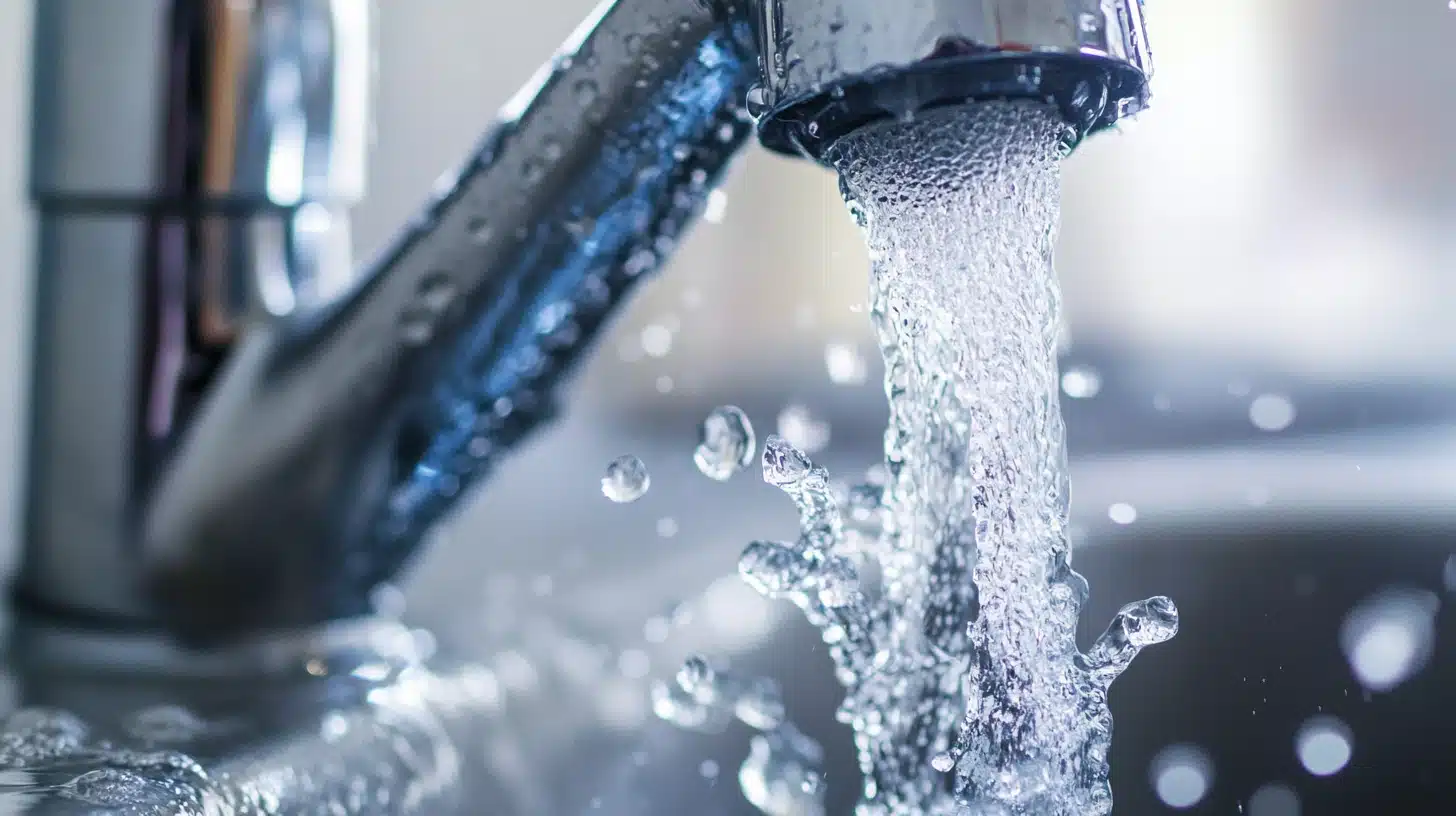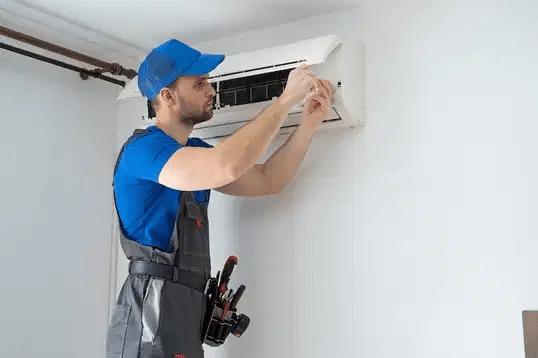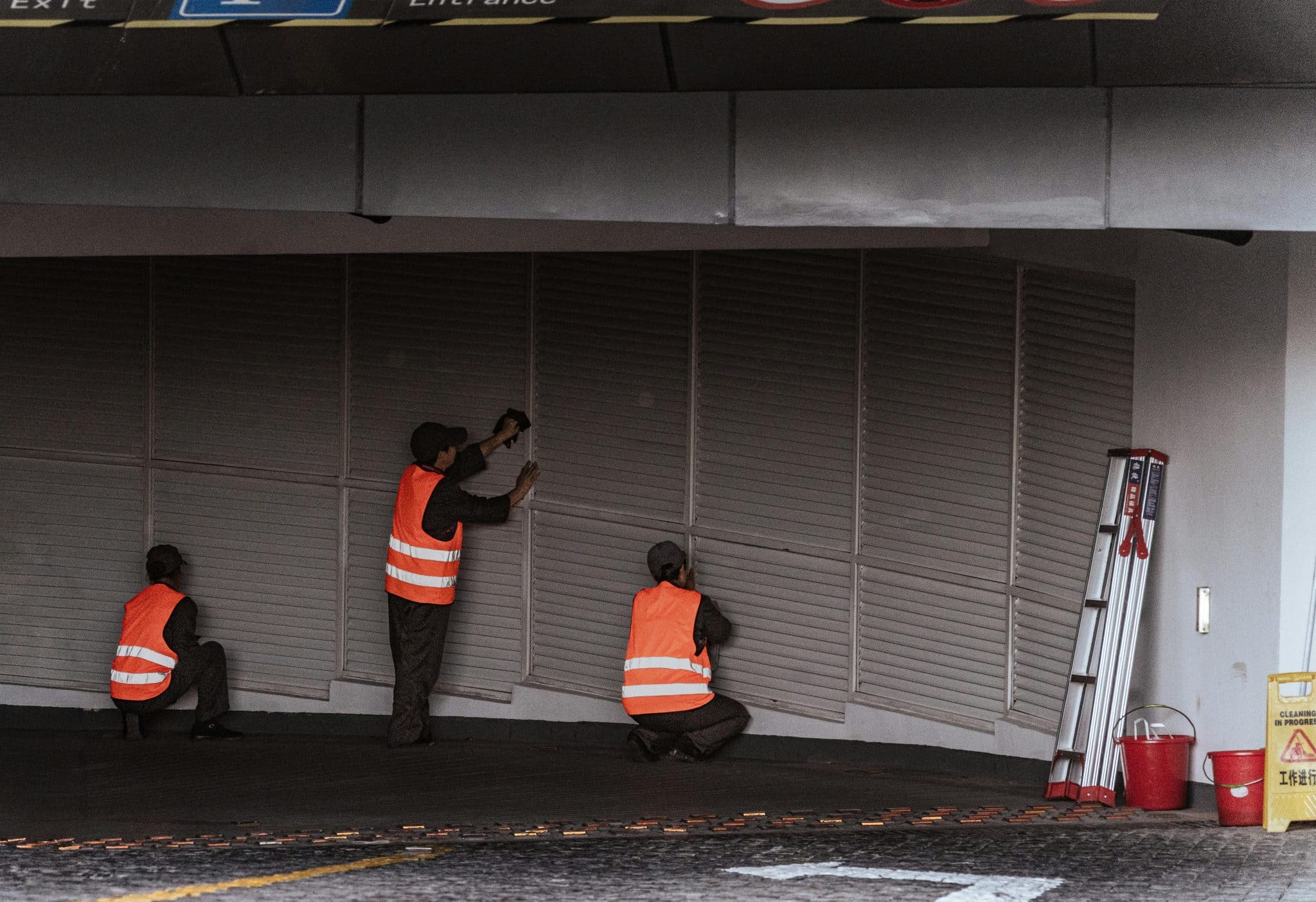Water is essential for daily life, but not all water is the same. Many households unknowingly deal with hard water containing high dissolved minerals like calcium and magnesium.
While hard water is safe for consumption, it can wreak havoc on plumbing systems over time. From clogging pipes to reducing appliance efficiency, the impact of hard water can be costly and frustrating.
Understanding how hard water affects your plumbing system is crucial for maintaining water flow, preventing damage, and extending the lifespan of household fixtures.
This article explores the effects of hard water on plumbing, how to recognize early warning signs, and the best solutions to protect your home from mineral buildup.
Signs of Hard Water in Your Plumbing System
Recognizing the early signs of hard water can help homeowners take preventive measures before significant damage occurs. Common indicators include:
- Low Water Pressure – As mineral deposits accumulate in pipes, they restrict water flow, leading to reduced pressure throughout the home.
- White or Chalky Residue on Fixtures – Hard water leaves behind noticeable white deposits on faucets, showerheads, and sinks.
- Frequent Appliance Malfunctions – Dishwashers, washing machines, and water heaters experience efficiency loss due to scale buildup.
- Soap and Detergent Inefficiency – Hard water prevents soap from lathering properly, leading to poor cleaning performance.
- Stiff or Faded Laundry – Clothes washed in hard water may feel rough, look dull, or develop a grayish tint over time.
Taking action at the first signs of hard water damage can prevent larger plumbing issues and costly repairs.
Why You Should Consult Experts for Plumbing Maintenance
Hard water damage can be difficult to manage without professional intervention. Mineral deposits accumulate over time, leading to pipe blockages, appliance failures, and inefficient water heating.
Seeking assistance from a professional plumbing company ensures that any hard water-related issues are identified and addressed before they escalate.
Plumbing professionals have specialized tools and techniques, such as hydrojetting and chemical descaling, to remove stubborn mineral deposits.
They can also recommend long-term solutions like water softeners, helping homeowners maintain an efficient plumbing system and avoid unnecessary repairs.
Effects of Hard Water on Pipes
One of the most serious consequences of hard water is its impact on household pipes. Over time, mineral deposits accumulate inside pipes, leading to several issues:
- Scaling and Blockages – As minerals settle, they form a chalky substance known as scale. This buildup narrows the pipe’s interior, reducing water flow and increasing pressure, which can lead to leaks or bursts.
- Corrosion Acceleration – Hard water interacts with metal pipes, leading to chemical reactions that accelerate rust formation. This weakens the pipes, making them more susceptible to leaks.
- Frequent Repairs – Homeowners dealing with persistent blockages or reduced water pressure often face recurring plumbing problems. If left unaddressed, the damage can require full pipe replacements.
Regular plumbing maintenance and water treatment solutions can help prevent these issues, ensuring a long-lasting and efficient water system.
How Hard Water Affects Water Heaters
Water heaters are particularly vulnerable to hard water damage. The presence of minerals affects their efficiency in multiple ways:
- Scale Accumulation on Heating Elements – In electric water heaters, calcium and magnesium deposits coat the heating elements, reducing their ability to transfer heat. This forces the unit to work harder, increasing energy consumption.
- Sediment Buildup in Tanks – Gas water heaters often develop a layer of sediment at the bottom of the tank. This acts as an insulating barrier, slowing down heating and increasing fuel usage.
- Shortened Lifespan – The increased strain on heating elements and other internal components reduces the overall lifespan of the appliance, leading to premature failure.
Flushing the water heater regularly and using a water softener can help minimize mineral buildup and extend the unit’s efficiency.
Impact of Hard Water on Plumbing Fixtures and Appliances
Beyond pipes and water heaters, hard water also affects fixtures and household appliances:
- Faucets and Showerheads – Mineral deposits clog aerators, reducing water flow and causing uneven pressure distribution.
- Dishwashers and Washing Machines – Scale buildup inside water lines and heating elements leads to inefficiencies, causing these appliances to consume more energy and require more frequent maintenance.
- Coffee Makers and Kettles – Appliances that heat water develop noticeable mineral deposits, requiring regular descaling to function properly.
Installing point-of-use filtration systems or using vinegar-based cleaning solutions can help manage minor buildup, but a long-term solution such as a whole-house water softener is the most effective approach.
How Water Softeners Prevent Plumbing Damage
Water softeners are highly effective in reducing the negative impact of hard water on plumbing systems. These devices work by replacing calcium and magnesium ions with sodium or potassium, preventing mineral buildup.
Benefits of using a water softener include:
- Extended Lifespan of Plumbing Components – Pipes, fixtures, and appliances last longer due to reduced scale accumulation.
- Improved Water Flow – With no mineral deposits clogging pipes, water moves freely, maintaining consistent pressure.
- Better Appliance Performance – Washing machines, dishwashers, and water heaters operate more efficiently, reducing energy consumption.
- Enhanced Cleaning Efficiency – Soap and detergents lather more effectively, making cleaning easier and preventing residue buildup on clothes and dishes.
Proper maintenance of a water softener ensures continued protection against hard water damage.
Alternative Solutions for Managing Hard Water
While water softeners are the most effective solution, alternative methods exist for households looking for different options:
- Electronic Descalers – These devices use electromagnetic fields to alter mineral properties, preventing them from forming a solid scale.
- Reverse Osmosis Systems – This filtration method removes minerals and other impurities, providing high-quality softened water at specific points of use.
- Magnetic Water Conditioners – These systems use magnetic fields to modify mineral structures, reducing their ability to form deposits. However, their effectiveness varies.
Choosing the right method depends on the household’s water hardness level, budget, and long-term maintenance preferences.
All in all, hard water presents numerous challenges for plumbing systems, leading to pipe blockages, reduced appliance efficiency, and costly repairs.
Recognizing early warning signs and taking proactive measures—such as installing a water softener or scheduling regular plumbing maintenance—can prevent significant damage.
By addressing hard water issues effectively, homeowners can ensure optimal water flow, lower energy consumption, and extend the lifespan of their plumbing infrastructure.








